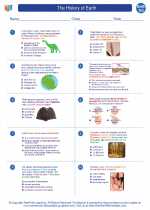Embryonic Development
Embryonic development refers to the series of processes that occur from the fertilization of an egg by a sperm to the formation of a complete organism. It involves the differentiation and growth of cells into tissues, organs, and ultimately, a fully formed organism. The process is highly regulated and involves intricate genetic, molecular, and environmental factors.
Stages of Embryonic Development
- Fertilization: The union of a sperm cell with an egg cell to form a zygote.
- Cleavage: The zygote undergoes rapid cell divisions, forming a cluster of cells called a morula.
- Gastrulation: The morula develops into a structure with three germ layers - ectoderm, mesoderm, and endoderm.
- Organogenesis: The germ layers give rise to specific organs and tissues through a process of differentiation and morphogenesis.
- Growth and maturation: The embryo continues to grow and mature, developing functional organs and systems.
Factors Affecting Embryonic Development
Embryonic development is influenced by various factors including genetic, environmental, and maternal factors. Teratogens, which are substances that can cause birth defects, can have a significant impact on embryonic development. These can include drugs, alcohol, and certain infections.
Study Guide
Here are some key concepts to focus on when studying embryonic development:
- Understanding the stages of embryonic development and the key events that occur in each stage.
- Identifying the roles of germ layers in the formation of specific tissues and organs.
- Explaining the impact of teratogens on embryonic development and the importance of prenatal care.
- Describing the regulatory mechanisms that control gene expression and cell differentiation during development.
- Discussing the significance of embryonic development in the context of evolution and adaptation.
Additionally, it's important to familiarize yourself with common developmental abnormalities and disorders, and the ethical considerations surrounding embryonic research and interventions.
Embryonic development is a fascinating and complex topic that integrates principles of biology, genetics, and developmental biology. By understanding the intricacies of this process, we gain insights into the fundamental aspects of life and the mechanisms that shape living organisms.
.◂Earth Science Worksheets and Study Guides High School. The History of Earth

 Worksheet/Answer key
Worksheet/Answer key
 Worksheet/Answer key
Worksheet/Answer key
